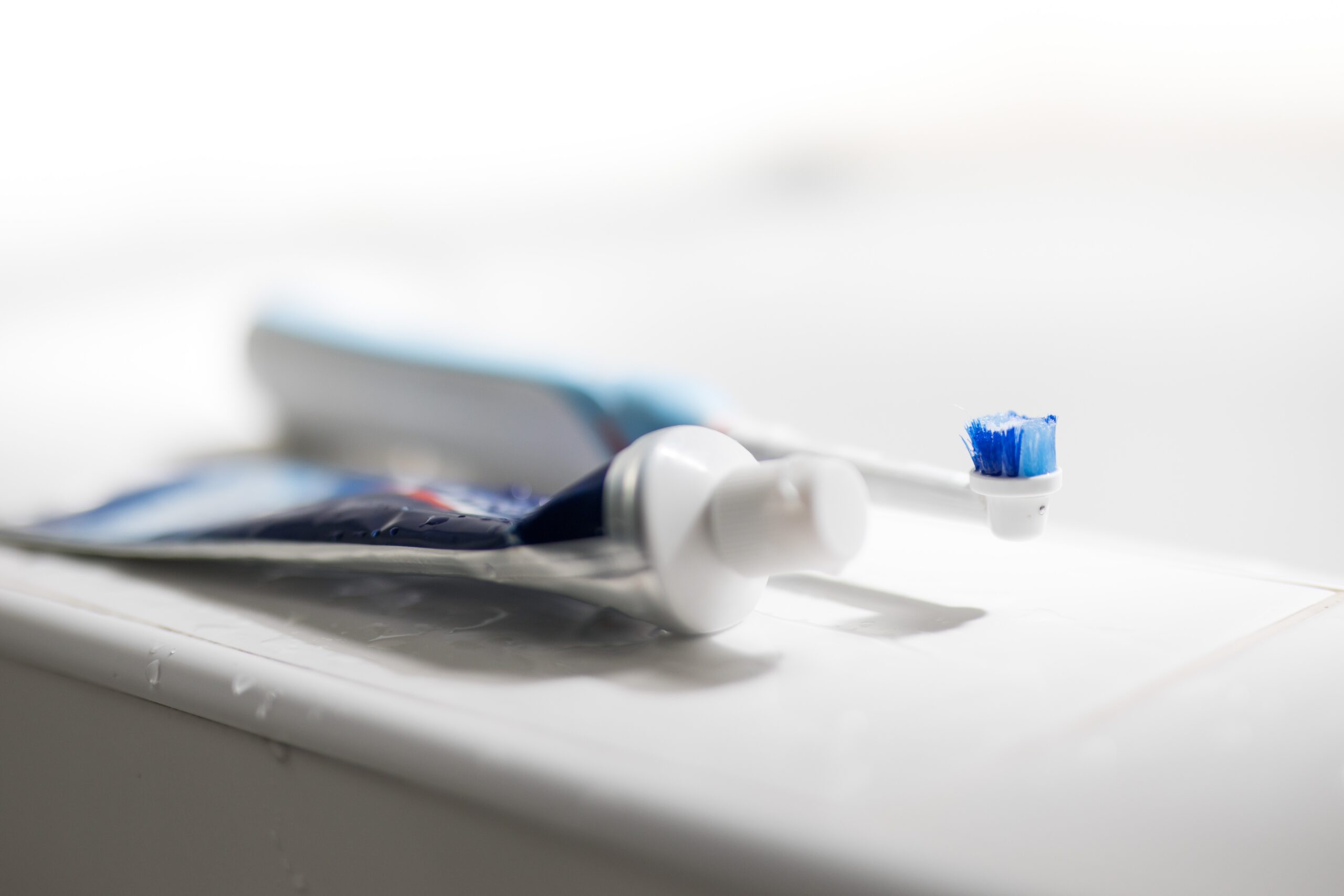
10 Jul Tooth Sensitivity: Causes, Treatments & Remedies for Sudden Pain
That unexpected zing in your mouth when you sip hot coffee or enjoy a scoop of ice cream? That’s tooth sensitivity, and it affects more Canadians than you might think. Whether your teeth are sensitive to hot and cold or you feel a lingering twinge when brushing, the discomfort can get in the way of everyday life. At True Dental, we know how frustrating this can be, especially when the cause isn’t obvious. Let’s explore the common causes of sensitive teeth, how to ease the pain, and when it’s time to seek professional dental sensitivity treatment.
What Causes Sudden Tooth Sensitivity?
Sudden tooth sensitivity can feel like it comes out of nowhere, but it always has a root cause (pun intended). The enamel on your teeth is your first line of defence, and when it wears down or gum recession occurs, the underlying dentin becomes exposed. This leads to nerve sensitivity when you eat or drink.
Here are some of the most common reasons for sensitivity in teeth:
-
Worn enamel – Often caused by aggressive brushing, acidic foods, or grinding (bruxism).
-
Receding gums – Gum tissue pulls away from the tooth, exposing roots.
-
Tooth decay or cracks – Cavities or hairline fractures can expose inner layers.
-
Post-dental treatment sensitivity – Temporary sensitivity following fillings, cleanings, or whitening.
-
Gum disease – Inflammation and infection can affect the roots and surrounding tissue.
-
Plaque build-up – Especially around the gumline, this can increase temperature sensitivity.
Sudden sensitivity might also point to a new issue so if your teeth suddenly hurt and it’s not going away, it’s time to call in the pros.
How to Help Sensitive Teeth at Home
While it’s always best to consult your dentist for a long-term solution, there are several remedies for sensitive teeth you can try at home to ease discomfort in the meantime. These simple changes can help you manage sudden tooth sensitivity and protect your enamel while you wait for a professional diagnosis. If you’re wondering how to help sensitive teeth feel better day to day, start with these tried-and-true strategies:
1. Use Desensitizing Toothpaste
Choose a toothpaste specifically designed for tooth sensitivity treatment. Look for active ingredients like potassium nitrate or stannous fluoride, which work by blocking pain signals from the tooth’s surface to the nerve. With consistent use over a few weeks, this can significantly reduce that uncomfortable sting from hot, cold, or sweet foods.
2. Switch to a Soft-Bristled Toothbrush
Aggressive brushing or using a hard-bristled toothbrush can wear away enamel and irritate your gums, both common causes of sensitive teeth. Instead, switch to a soft-bristled toothbrush and brush using gentle, circular motions. This small change can go a long way in preserving enamel and reducing irritation.
3. Cut Back on Acidic Foods and Drinks
Highly acidic items like citrus fruits, tomatoes, soda, energy drinks, and vinegar-based dressings can erode tooth enamel, leading to dental sensitivity over time. If you do consume these items, rinse your mouth with water afterward and avoid brushing immediately to prevent further enamel damage.
4. Try a Fluoride Rinse
An over-the-counter fluoride mouth rinse can help strengthen enamel, reduce pain, and provide an extra layer of protection for your teeth. These rinses are an easy way to supplement your daily oral care routine and support remedies for sensitive teeth at home.
5. Avoid Whitening Products
Tooth whitening strips, gels, and even some “whitening” toothpastes often contain peroxide or other ingredients that increase tooth sensitivity, especially if your enamel is already weakened. If you’re dealing with a sensitive tooth hot and cold situation, it’s best to press pause on whitening until you’ve addressed the underlying sensitivity.
By following these practical steps, you can learn how to reduce tooth sensitivity at home and protect your smile from further discomfort. But if sensitivity persists, worsens, or becomes localized to one area, it’s time to see your dentist for a more targeted sensitive tooth cure.
Professional Tooth Sensitivity Treatment Options
When DIY options aren’t enough, it’s time to explore professional tooth sensitivity treatment. At True Dental, we offer tailored solutions based on the underlying cause of your sensitivity.Here are some of the most effective treatments for sensitive teeth:
-
Fluoride varnishes and gels
Applied in-office to strengthen enamel and relieve pain. -
Dental bonding
For exposed roots or enamel loss, composite resin can cover the sensitive area. -
Gum graft surgery
When receding gums are the culprit, grafting can protect the roots. -
Root canal therapy
For extreme cases where decay has reached the pulp, a root canal can remove the problem entirely. -
Custom night guards
If grinding is causing enamel wear, a night guard can protect your teeth as you sleep.
Each case of tooth sensitivity is unique, so our dental team will assess your oral health and customize the right approach to get you smiling again—pain-free.
Teeth Sensitive to Hot and Cold? Here’s What It Means
Feeling that sharp twinge when enjoying ice cream or sipping on a hot beverage? This is the classic sign of tooth sensitivity with hot and cold triggers. It means the protective barrier over your tooth’s nerve, the enamel or cementum, has been compromised.
This temperature sensitivity can be caused by:
-
Tiny cracks in the enamel
-
Gum recession exposing root surfaces
-
Recent whitening treatments
-
Worn fillings or old dental work
Don’t ignore it. If the pain is persistent or worsening, it may indicate something more serious like a fractured tooth or infection. At True Dental, we use advanced diagnostic tools to pinpoint the exact cause of tooth sensitivity and offer effective dental sensitivity treatment before it becomes a bigger issue.
Best Ways to Cure a Sensitive Tooth
If you’re wondering how to cure a sensitive tooth, know that the best approach is often layered, starting with home remedies and moving to professional care as needed. Here’s a breakdown of the sensitive tooth cure process:
- Prevention
Brush gently with a soft toothbrush, floss daily, and reduce acidic foods and sugary snacks.
- At-home remedies
Use a desensitizing toothpaste, fluoride rinses, and avoid extreme temperatures in foods/drinks.
- Dental treatments
Visit your dentist for in-office fluoride, bonding, or more involved procedures like a root canal if required. While there’s no “one-size-fits-all” tooth sensitivity remedy, combining smart habits with expert guidance will give you the best chance at lasting comfort.
When to See a Dentist for Tooth Sensitivity
If your sensitivity is sudden, severe, or interfering with daily life, don’t wait. Especially if it’s:
-
Localized to one tooth
-
Accompanied by swelling or bleeding
-
Persistent despite using sensitive toothpaste
The sooner you get a proper diagnosis, the sooner you can explore effective tooth sensitivity remedies that go beyond short-term relief.
Final Thoughts
Tooth sensitivity may be common, but it’s not something you have to live with. Whether it’s caused by enamel wear, gum recession, or another hidden culprit, there are proven ways to ease discomfort and reclaim your smile. At True Dental, we believe in proactive, personalized care that targets the root of the problem, not just the symptoms. If you’re tired of wincing every time you eat or drink, we’re here to help with comprehensive tooth sensitivity treatment options that work.




